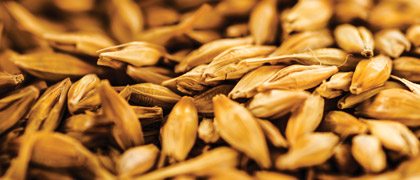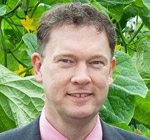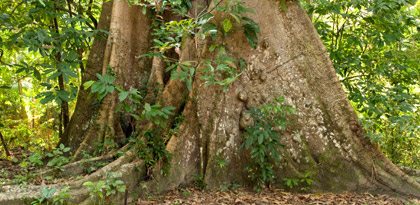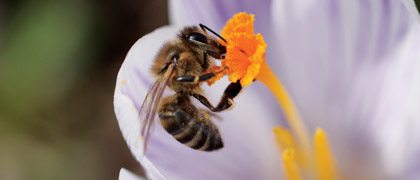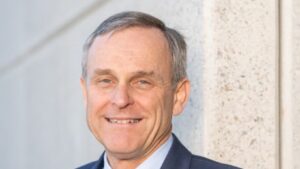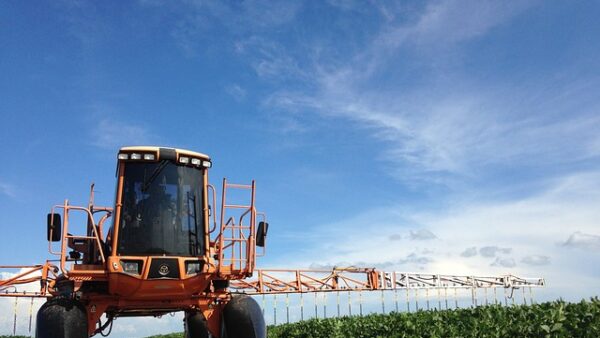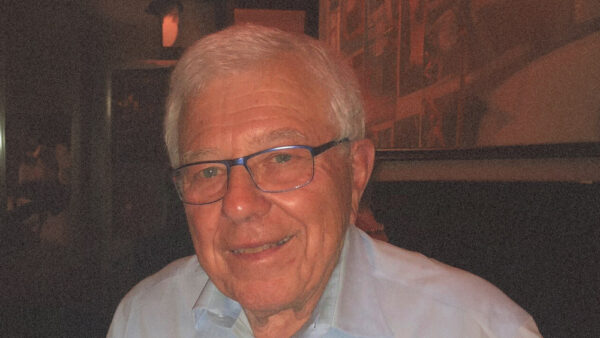Wednesday, May 29, 2013
Speaker Spotlight
Meeting the Demands of a Growing World
“The 2013 International Seed Federation World Seed Congress will be an informative learning and networking opportunity for over 1,500 participants. I am honored to represent the Global Harvest Initiative and to exchange experience and collaborate with seed industry participants from all over the globe,” says Margaret Zeigler, executive director of the Global Harvest Initiative.
Zeigler is scheduled to address attendees during the open meeting of the Field Crops Section Wednesday morning. She plans to discuss improving agricultural productivity to sustainably meet the demands of a growing world.
Before joining the Global Harvest Initiative, Zeigler held the position of deputy director for the Congressional Hunger Center, working with various public and private sectors, industry leaders and policymakers. Devoted to addressing food security and global hunger, Zeigler also serves as a media commentator and has written several publications on food security issues.
“The seed industry is a powerful force for greater productivity so farmers everywhere can meet the demands of a growing world,” says Zeigler.
Cross Pollination
Plant Breeding on Fast Forward
A team of international researchers has developed a new plant breeding technique that enables the development of up to eight generations of wheat and nine generations of barley a year. The team—involving researchers from China, the Commonwealth Scientific and Industrial Research Organization and the University of Western Australia—has perfected a method of embryo culture. While embryo culture has been used before, this team was able to achieve stunning results by combining it with specially modified water, light, temperature, humidity and potting-mix management. “By dramatically shortening times required to obtain pure-line plant genotypes, our method could have wide applications in breeding and biological studies,” says Guijun Yan, co-author and associate professor at UWA’s School of Plant Biology and Institute of Agriculture. Yan said one team member was able to dissect 60 plant embryos per hour from the developing grains.
Germains: Delivering Industry-Leading Innovative Seed Technology
Focusing on the Future
Germains is committed to developing new products and innovations that maximize the potential of seed and deliver real benefit in the field.
In 2012, Germains’ commitment to research and development was reinforced with the opening of a new European horticulture treatments facility in Enkhuizen—Seed Valley of the Netherlands and home to many of our European customers. This investment demonstrated our commitment to be at the center of the seed industry, bringing leading innovations and setting high standards for product quality and value.
Enkhuizen is one of three research and development facilities within the Germains group, working closely with the U.K. team in Kings Lynn, England, and the U.S. team in Gilroy, Calif.
Whether it’s focusing on developing new products or adding value to horticulture products, we listen to our customers to deliver solutions that respond to the ever-changing agricultural and regulatory environment in which we operate. From clean seed to improved nutrient uptake, Germains can maximize the potential of seed.
Our research teams are focused on building the best solution to meet your needs.
Visit the team today in private meeting room 344 or contact us at the numbers below to discuss your requirements:
Ab Aarnoudse EU Horticulture—R&D Manager 0031-228- 351-020
Olaf Bosman EU Horticulture—Head of Operations 0031-228- 351-029
Edouard NegreU.S. Horticulture—Head of Sales 001-408-840-1850
Dale Krolikowski U.S. Horticulture—Head of Operations and Research 001-408-848-8120
Alternatively, visit germains.com for more information.
Tuesday, May 28, 2013
Speaker Spotlight
Seed Testing Standards Crucial
|
Marcel Toonen |
Marcel Toonen, head of laboratories with the Netherlands-based Naktuinbouw, will address attendees during the open meetings of the Phytosanitary Committee and the Vegetable and Ornamental Crops Section, where he plans to discuss the seed testing that is required to guarantee good seed quality and to fulfill phytosanitary requirements.
“Plant pathogens may cause severe damage to food production systems and also to the environment,” says Toonen. “To prevent the outbreak of diseases, healthy and reliable starting material is essential. Hygienic production systems and reliable seed testing methods are the basis for healthy sowing seeds.”
Toonen obtained his doctorate at Wageningen University. In his position as head of laboratories at Naktuinbouw, Toonen focuses on plant diagnostics, seed and plant health testing, and testing for seed quality. The work of laboratories is supported by the R&D team that translates the latest scientific knowledge into new testing methods.
“The growth of international trade in sowing seeds increasingly requires uniform testing methods,” says Toonen. “Harmonization of methods allows us to compare test results from different laboratories. It also forms a solid base for the validation of the test methods of choice. This will allow us to learn the quality of the test method, and allows for further improvement of the test.”
Cross Pollination
Agriculture Impacting Brazil’s Rainforest
“Trade is emerging as a key driver of deforestation in Brazil,” said experts at the Center for International Climate and Environmental Research, Oslo in a recent report entitled, “Attribution of CO2 Emissions from Brazilian Deforestation to Consumers Between 1990 and 2010” and published in the journal Environmental Research Letters. “This may indirectly contribute to loss of the forests that industrialized countries are seeking to protect through international agreements.” The study said rising foreign demand for beef and soybeans will tempt Brazil to clear more of the Amazon rainforest, in a reversal of recent success in slowing forest losses. About 30 percent of deforestation in Brazil in the decade to 2010 was due to farmers and ranchers seeking land to expand export production of beef and soybeans, compared with about 20 percent in the 1990s, the report said.
Germains: Delivering Value-Added Solutions
Gopure spinach powered by Rancona—clean seed, pure and simple
Providing industry-leading innovative seed technology using the latest biological tools and techniques, Germains provides value-added solutions to maximize the natural potential of seed in the field.
With more than 144 fields in California infected with
the fungal pathogen Verticillium dahliae, focus has turned to providing clean seed and protection. This is particularly relevant to spinach where combining healthy seed with a strong soil protection package is vital to the success of a crop.
Responding to customer demand for a solution, Germains developed gopure, a conventional spinach seed disinfectant that inhibits the growth of seed-borne fungal pathogens such as Verticillium dahliae, Stemphylium botryosum, Cladosporium and Alternaria. Gopure spinach is the first EPA-approved seed-applied fungicide treatment that has proven efficacy against these pathogens, and is commercially available today to markets in the United States and Mexico.
Working in close partnership with Chemtura Agrosolutions, this integrated pest management system also fights soil-borne pathogens like Rhizoctonia.
Germains is a global innovative business, providing the technology, expertise, experience, logistics and market knowledge in both horticulture and sugar beets to grow your business. Why not discuss value-added bespoke solutions with us today.
For European and U.S. commercial enquiries, please visit the team in private meeting room 344 or contact us at the numbers below:
Ab Aarnoudse EU Horticulture—R&D Manager 0031-228- 351-020
Olaf Bosman EU Horticulture—Head of Operations 0031-228- 351-029
Edouard Negre U.S. Horticulture—Head of Sale 001-408-840-1850
Dale Krolikowski U.S. Horticulture—Head of Operations and Research 001-408-848-8120
Alternatively, visit germains.com for more information.
Protecting Pollinators
Understanding Colony Loss
This year overwinter losses of honey bee colonies have reached an all-time high in North America, and honey bee health continues to be a top priority for the agriculture industry. Debate over possible causes of declining bee health continues in many nations throughout the world, but many experts say there is no one simple answer to this issue.
Roughly one-third of the food we consume is reliant on the tireless labor of pollinators. And Apis mellifera, the honey bee, is the only pollinator capable of being managed on a scale large enough to satisfy the demands of the global agriculture industry, making honey bees indispensable partners in the pursuit of feeding the masses.
“Almost all of the dietary items that we like to eat and that are good for us are highly dependent on the honey bee for pollination,” says Iain Kelly, bee health issues manager with Bayer CropScience. According to Bayer, there are approximately 25,000 to 35,000 commercial beekeepers in the United States, and honey bee pollination services are estimated to provide $40-billion worth of added value to crops worldwide every year.
Introduced to North America from Europe in the early 17th century, honey bees require large quantities of nectar and pollen to rear their young and produce honey. In commercial use, honey bees are treated as managed livestock. The hives support high populations of bees, and are transported by beekeepers to farmers’ fields to provide mass pollination of crops.
The commercial pollination industry has been experiencing losses of adult worker bees since the mid-’80s. Across the globe, bees have been dying off at alarming rates—in some cases whole colonies at a time.
“Most of the general public has no clear idea of how we produce food in this country, or the challenges faced by the agriculture industry,” says George Hansen, president of the American Beekeeping Federation. “Honey bees are threatened. Generally, the bees cannot survive without intervention from humans to protect them from pests, and to supplement their nutrition.” Read more.
Monday, May 27, 2013
Speaker Spotlight
Paper to be Presented on LLP in Seed
 Bernice Slutsky |
This week seed professionals from more than 80 countries will gather in Athens, Greece, for the annual International Seed Federation Congress. Delegates from around the world will spend the week sharing knowledge, considering new research and technology developments, facilitating the movement of seed, and developing industry networks.
Bernice Slutsky, senior vice president of domestic and international policy with the American Seed Trade Association and chair of the ISF AP Working Group, will address the ISF Breeders Committee open meeting on Monday afternoon. Slutsky plans to discuss the ISF position paper, ISF View on Low Level Presence in Seed, as well as provide updates from the ISF Adventitious Presence Working Group.
“We are hopeful that the general assembly will pass an ISF paper on seed low level presence. This paper will first be presented at the Breeders Committee meeting and then during the general assembly. Low level presence in seed is a key issue for the global seed industry, and it will be important for ISF to articulate its position on this topic,” she says.
Slutsky holds a doctorate in biology from the University of Iowa and has worked in a number of different positions involving emerging technologies, intellectual property rights, and international regulation and trade. She has coordinated USDA policies in agriculture biotechnology as senior advisor for biotechnology in the Office of the Secretary and held the position of biotechnology coordinator of international trade policy at the USDA Foreign Agriculture Service. Slutsky has been working for ASTA since 2006. She previously held the position of vice president of science and international affairs.
Slutsky is a regular attendee of the ISF congress and acknowledges the importance of the annual meeting in order to inform members, mobilize and represent the seed industry at a global level, and promote the interest and image of the seed industry.
Cross Pollination
Canada Emerging as Leader in LLP
“Right now, in some importing countries there is a reluctance to move forward on LLP policy issues. Canada is leading that discussion by going through a consultation process and developing a Canadian LLP policy for imports into Canada,” says Will Hill, president of the Flax Council of Canada. “Canada is leading the way in terms of developing a responsible domestic LLP policy that will help facilitate the free movement of goods between countries without imposing additional risk and without giving up its ability to assess those products as they’re put forward for approval in Canada. … By doing that, Canada is certainly leading the way, such that other jurisdictions will have a model within which to deal with the issue,” says Hill.
Germains: Working Together to Maximize the Potential of Seed
Founded in 1871 by Eugene Germain in Los Angeles, Calif., Germains Seed Technology is proud of its heritage. From a retail seed and plant business, Germains grew and diversified into seed technology in the early 1950s, becoming the first company to create pellets—a staple element of modern agriculture to this day.
Over the years, Germains has grown to nearly 200 employees, and is one of the largest global independent seed technology companies, with offices and research facilities in the United Kingd
om, Western Europe and the United States, providing the following services:
• Industry-leading innovative seed technology
• Collaborative partnerships
• Business sustainability
• Responsible value chains
• Global market insight with local service, knowledge and expertise
Germains’ European and U.S. commercial teams are committed to delivering a superior customer experience, working closely with customers to deliver innovative and bespoke value-added solutions that maximize the natural potential of your seed in the field.
Visit the team today in private meeting room 344 or contact us at the numbers listed below:
Ab Aarnoudse, EU Horticulture—R&D Manager 0031-228-351-020
Olaf Bosman, EU Horticulture—Head of Operations 0031-228-351-029
Edouard Negre, U.S. Horticulture—Head of Sales 001-408-840-1850
Dale Krolikowski, U.S. Horticulture—Head of Operations and Research 001-408-848-8120
Alternatively, visit germains.com for more information.



